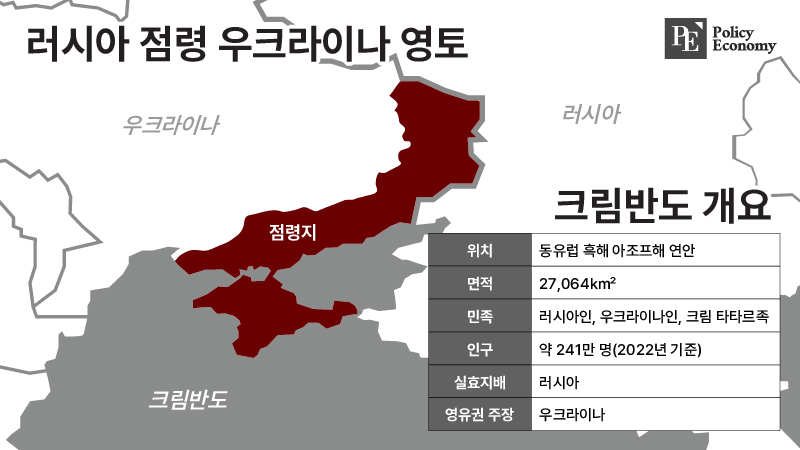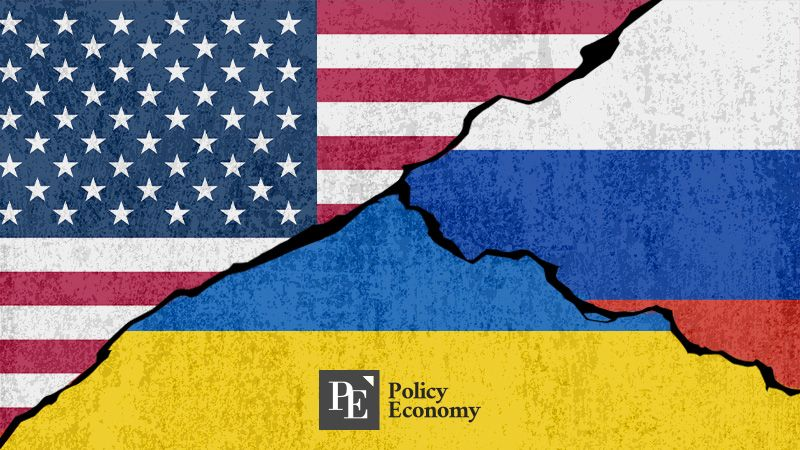As the End of the War Approaches on the Ukrainian Front, a Hasty United States and Russia-Ukraine Seek an Upper Hand in Negotiations
Input
Modified
Zelensky Makes a Rhetorical Gesture with Negotiations in Mind Putin Increases Pressure with Airstrikes on Kyiv Only Trump Grows Impatient as the Negotiation Table Is Set

With the Ukraine war seemingly inching toward a conclusion, tensions are rising not only on the battlefield but also at the negotiating table. U.S. President Donald Trump is racing to broker a peace agreement, hoping to notch a major diplomatic victory. Yet the path to peace is anything but smooth, as Ukrainian President Volodymyr Zelensky resists U.S. proposals, wary of political backlash at home. Russia, meanwhile, is escalating military pressure, aiming to force concessions. As the situation grows more volatile, it becomes clear that ending the war will require navigating not just international diplomacy but also the complex domestic politics of the players involved.
Trump Accelerates Russia-Ukraine Peace Talks, but Zelensky Pushes Back
President Donald Trump has intensified efforts to push forward a peace agreement between Russia and Ukraine, but President Volodymyr Zelensky has made it clear that Ukraine cannot accept the U.S.-backed proposal. Zelensky’s rejection appears to be a strategic move, possibly laying the groundwork for Ukraine to introduce its own version of a peace plan, mindful of possible political repercussions at home.
Speaking at a joint press conference with South African President Cyril Ramaphosa in Pretoria on the 24th (local time), Zelensky stated, "We will implement everything our partners propose," but firmly added, "However, we cannot do anything that violates our laws and constitution." His comments were widely interpreted as a reference to Crimea, which remains under Russian occupation. Ukraine’s Constitution, under Article 2, emphasizes that the nation’s sovereignty extends over its entire territory and prohibits any division within its current borders.
Crimea, transferred to Ukraine by the Soviet Union in 1954, was forcibly seized and annexed by Russia in 2014, an act condemned by the international community as a violation of international law. Zelensky has maintained that Ukraine cannot recognize Crimea as Russian territory without violating its Constitution — a move that would require a national referendum.
Originally, U.S. Secretary of State Marco Rubio and Trump administration envoys had scheduled a final round of peace negotiations with Ukraine, the U.K., France, and Germany in London on the 23rd. However, after recognizing significant disagreements with Ukraine, Secretary Rubio abruptly withdrew on the eve of the meeting, downgrading the event to a working-level discussion. Reports indicate that the Trump administration was furious at Ukraine’s last-minute stance, complicating the fragile negotiations.
Russia, too, wasted no time in criticizing Zelensky’s position. Russian Foreign Ministry spokesperson Maria Zakharova accused Zelensky of stubbornly insisting on his own terms without offering concessions, claiming he was "intent on derailing the agreement at any cost." Russian state media TASS, quoting London School of Economics analyst Tigran Meloyan, reported that the European-Ukraine alliance appeared to have decided against accepting the Trump administration’s proposal even before the final talks, and was instead preparing its own counter-proposal.
Russia Seeks to Maximize Negotiation Leverage Through Airstrikes
Even as negotiations stumbled, Russia launched a devastating air assault on Ukraine’s capital, Kyiv. According to Reuters and other sources, early on the 24th, a large-scale Russian airstrike rocked the capital, setting off air raid sirens and explosions across the city. Government buildings and civilian homes suffered extensive damage, with local authorities reporting at least 12 deaths and nearly 90 injuries, including children. Over 40 fires erupted citywide, and emergency teams, including climbing experts and search-and-rescue dogs, were deployed to 13 different sites.
The previous evening, two missile strikes hit Ukraine’s second-largest city, Kharkiv, injuring two civilians. Andriy Yermak, head of the Ukrainian Presidential Office, condemned Russian President Vladimir Putin, accusing him of displaying nothing but a "desire for murder" and calling for an immediate cessation of attacks on civilians.
The timing of the airstrikes — coinciding with the emergence of renewed peace talks — strongly suggests that Russia was seeking to bolster its negotiating leverage through brute force. Historically, Russia has employed a similar strategy, using military pressure to intimidate opponents at the negotiating table. This latest assault sends a clear warning to both Ukraine and its Western allies: should negotiations fail, Russia is prepared to reignite full-scale war.

Is the Impatience Trump's Burden?
As both Ukraine and Russia dig in with hardline rhetoric and military action, President Trump’s impatience for an early peace becomes ever more visible. His approach now appears less about mediation and more about coercion, as he ramps up pressure to secure a diplomatic breakthrough — a much-needed achievement given his mounting criticism over controversial policies like tariffs.
On the 23rd, Trump took to his social media platform, Truth Social, to criticize Zelensky’s hardline stance, calling it "very harmful to negotiations." Mocking Ukraine’s past inaction, Trump wrote, "If they wanted Crimea so badly, why did they hand it over to Russia without firing a single shot 11 years ago?" He further declared that "Crimea is already ‘lost’ territory and cannot even be a subject of discussion," blaming Zelensky’s "inflammatory remarks" for complicating the peace process.
Despite Trump’s aggressive push, whether it will translate into an actual agreement remains uncertain. Zelensky faces the risk of political backlash at home, while Putin, too, must weigh the reaction of the Russian public and military elite.
Given Crimea’s immense strategic value in the Black Sea, finding common ground will not be easy. Thus, the Ukraine-Russia peace talks remain entangled not only in international diplomacy but also in the fierce currents of domestic politics, making a swift and simple resolution increasingly unlikely.





















